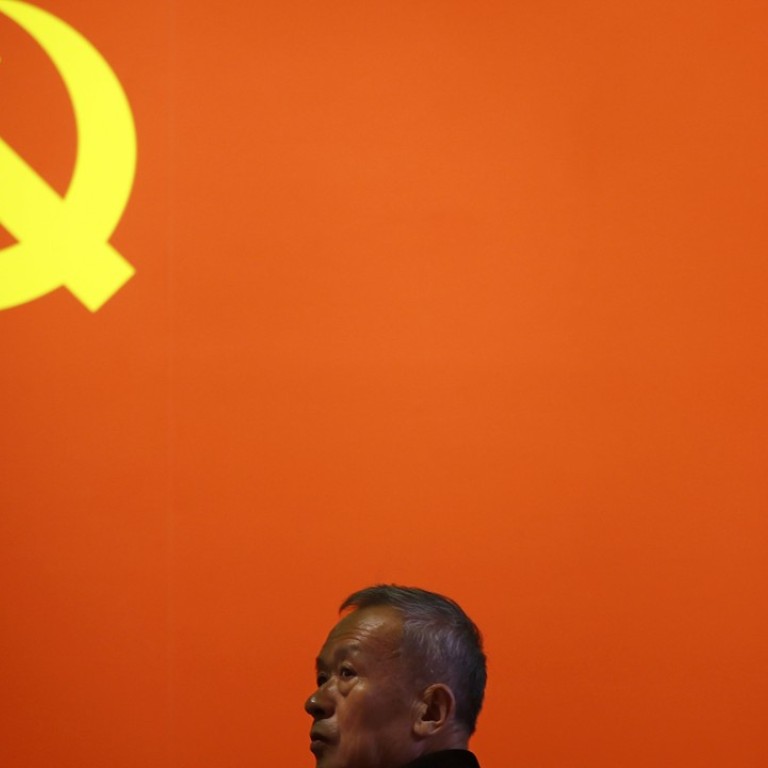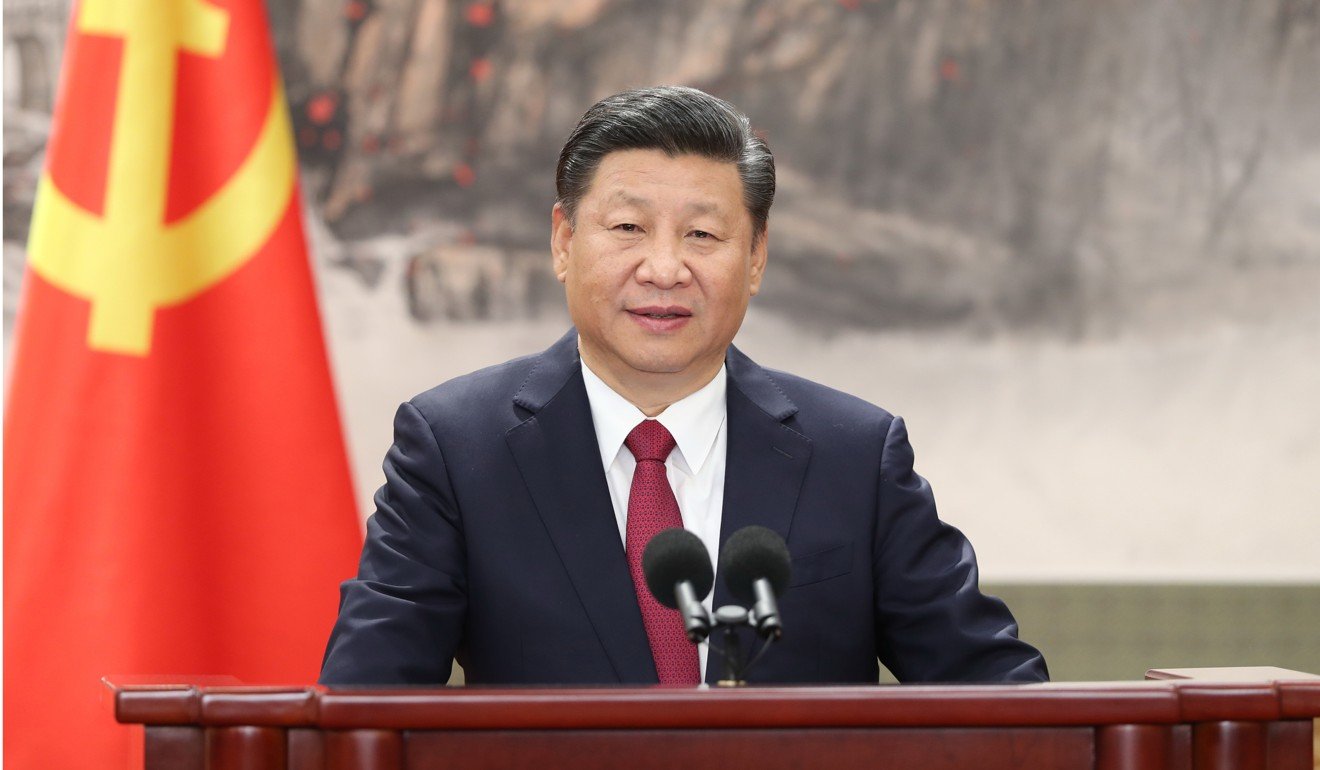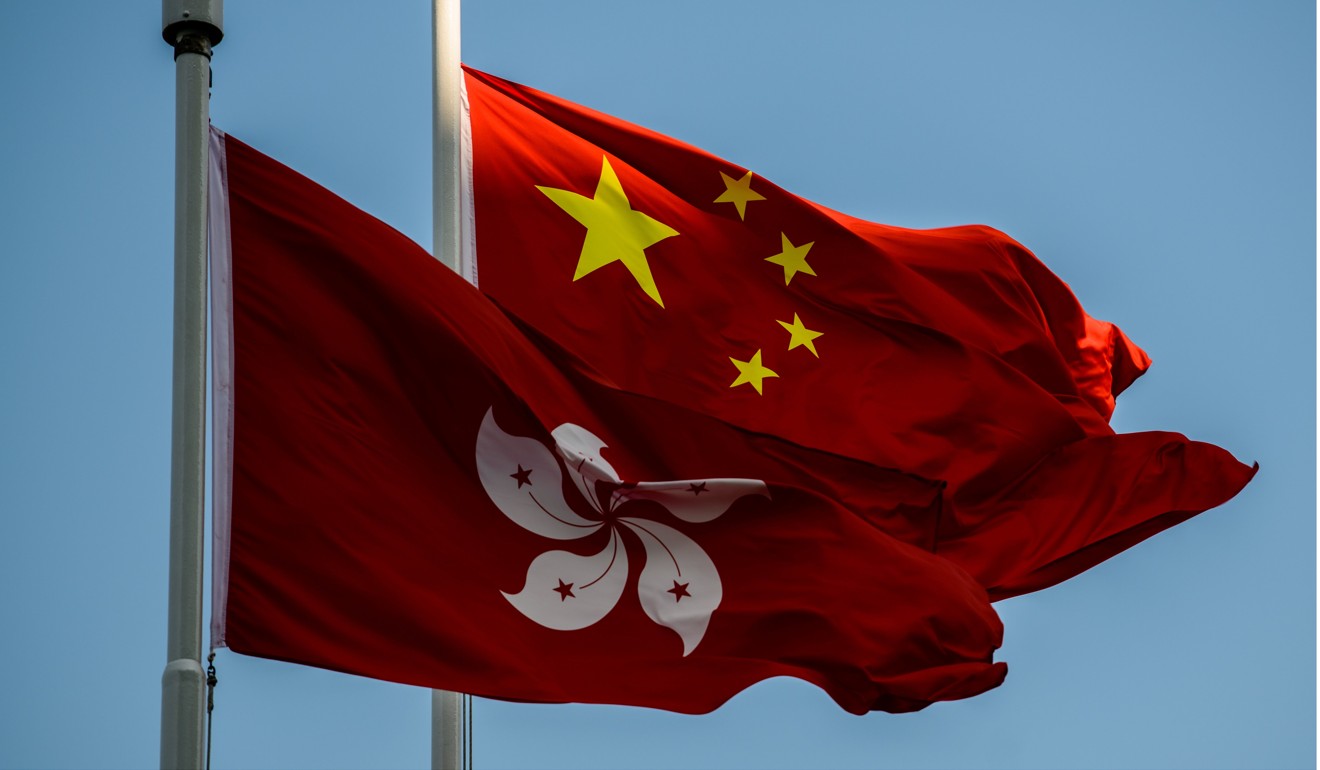
How has China’s Communist Party kept power? 100 Hong Kong political bigwigs get rare lecture from senior theorist
Qu Qingshan, deputy head of the party’s history and literature research institute, delivers 2½-hour talk to local NPC delegates, as Beijing seeks to assert its influence in Hong Kong
A senior Communist Party theorist has given a rare lecture in Hong Kong in which he told more than 100 local delegates and advisers to the national legislature that the party had survived almost 70 years ruling China because it learned from its mistakes and moved with the times.
Qu Qingshan, deputy head of the party’s history and literature research institute and a member of its powerful Central Committee, delivered the 2½-hour talk on Sunday at Beijing’s liaison office in Sai Wan.
The unusual speech on party history comes after recent efforts by Beijing to assert its control and widen understanding in Hong Kong of the country’s history and development.
Hong Kong, governed under the “one country, two systems” policy since the end of British colonial rule in 1997, has its own economic and legal systems separate from the rest of China, and Beijing’s involvement in local politics has been limited. However, in recent years the central government has moved to reaffirm its sovereignty.

Participants believed the event was part of a national policy to reinforce the status of the party in Hong Kong, and could be the first of several such lectures.
More than 100 people, including delegates to the National People’s Congress, attended the talk along with members of the Chinese People’s Political Consultative Conference, the country’s top advisory body.
Government rewrites history of Hong Kong’s 1997 handover, one inconvenient phrase at a time
Two anonymous sources said Qu analysed how the party had managed to stay in power when communists in Russia failed and the former Soviet Union collapsed.
“One problem with the Soviet communist party was its lack of new ideologies and theories after Vladimir Lenin and Joseph Stalin. But the Chinese Communist Party has built up its own ideologies according to the changing times and social situation,” a source quoted Qu as saying.
Each Chinese leader had formulated his own theories in response to the needs of each generation, Qu said, from Deng Xiaoping Theory, Jiang Zemin’s Three Represents and Hu Jintao’s scientific concept of development, to Xi Jinping Thought laying out “socialism with Chinese characteristics for a new era”.
Qu conceded the party had made mistakes, but said it had a built-in “self-healing mechanism” to rectify these situations.
Beijing has ultimate control of Hong Kong – that’s the reality of ‘one country, two systems’

“I quite enjoyed the lecture as I am interested in history,” one participant, who wished to remain anonymous, said. “Learning more about the ruling party is part of understanding the country.”
Another anonymous participant noted the changing strategy of Beijing in governing Hong Kong.
“As more political conflicts have surfaced over the years, Beijing has talked more openly about the national constitution and the party,” he said.
Why Beijing feels the need to kill a ‘chicken’ when it comes to talk of independence in Hong Kong and Taiwan
Last month the head of the liaison office said any Hongkonger who opposed the party’s leadership was committing a crime. Separately, the former head of the Hong Kong and Macau Affairs Office, Wang Guangya, warned that those who chant slogans in favour of ending one-party rule in China should not be allowed to run for political office in the city.
Veteran China watcher Johnny Lau Yui-siu said Qu’s speech was merely propaganda.
“The party decided to strengthen its control over the country after the fall of the Soviet Union, curbing the freedoms of the people,” he said, and that was partly how it had maintained power.

